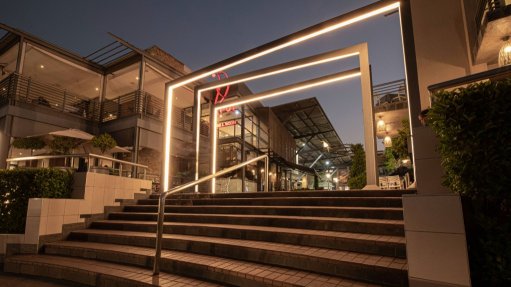Brutal peacekeepers?
Haiti, an archipelago in the Caribbean Sea with a population of about 11.5-million people, should be fairly well known to the average South African. That’s partly because former President Thabo Mbeki had a soft spot for the country, which became the first former colony to gain independence on the back of a revolution by self-liberated slaves – most of them of African ancestry – in 1804.
It was because of this affinity that Mbeki – on at least two occasions during his Presidency – made decisions that thrust Haiti on the South African media agenda, thus raising the island nation’s salience among South African news consumers.
When the bicentennial anniversary of Haiti’s independence rolled around in January 2004, the South African government donated R10-million towards preparations for the celebratory event, a decision for which it came under much criticism. In his typical style, Mbeki dismissed his detractors as people who “don’t know anything about the bicentennial”, adding that “it is necessary that all Africans should celebrate”.
Mbeki travelled to Haiti for the festivities, but the visit generated bad publicity when South African security personnel became involved in an exchange of fire with apparent protestors.
Mbeki’s host at the bicentennial celebrations, President Jean-Bertrand Aristide, was forced out of office barely two months later and was received with open arms when he sought asylum in this country. South Africa would play host to him until 2011, and during their stay here Aristide and his wife were honorary fellows at the University of South Africa – in the College of Human Sciences and the Centre of African Renaissance Studies respectively.
In between conducting research at the university and doing other things, Aristide found time to teach himself Zulu – that’s how much he loved this country. Indeed, he began his stay in South Africa by thanking his hosts in the language: “Siyabonga.”
Haiti also has a relatively high level of salience on the South African media and public agendas because of the multiple mishaps that have befallen it over the years: earthquakes, including one that killed up to 300 000 people in 2010; cholera epidemics; hurricanes, including Hurricane Matthew, which struck in 2016, killing 580 people and rendering 35 000 homeless; and floods, the latest bout of which occurred in June this year, killing 51 people and injuring 140 others.
But Haiti’s woes have not been solely acts of God. The country has a long history of political instability, having witnessed coups, assassinations and debilitating protests.
Currently, the country is in the throes of gang violence that was sparked off by the assassination of former President Jovenel Moise in 2021. The authorities have struggled to staunch the violence, which has proved to be a major impediment to holding crucial long- delayed elections in the country.
For months, the Haitian authorities and the United Nations (UN) have called for military intervention in the country, but Haiti’s neighbours and other Western countries have quietly declined playing a leading role.
Now, Kenya has put its hand up, volunteering a 1 000-strong contingent of its police force. The East African country’s President, William Ruto, described the gesture as “an important moment in the history of global multilateralism . . . that enables the nations of the world to discharge a collective moral duty of securing justice and security for all people of all nations”.
But I would say: hold on – what about the Kenyan police’s very recent history of brutality?
This year, Kenya has witnessed multiple anti-government demonstrations organised by the country’s main opposition party, led by former Prime Minister Raila Odinga. The key grievances have been electoral injustice, the high cost of living and tax increases. The first wave of demonstrations took place in March, followed by subsequent waves in May and July.
The Kenyan police responded with brute force, killing and injuring scores of the demonstrators. The UN put the death toll at 23, while the Kenya Civil Society Centre described the fatalities as extrajudicial killings.
Given this record, there is reason to be concerned about the poor people of Haiti, who have already experienced so much hardship.
Article Enquiry
Email Article
Save Article
Feedback
To advertise email advertising@creamermedia.co.za or click here
Comments
Press Office
Announcements
What's On
Subscribe to improve your user experience...
Option 1 (equivalent of R125 a month):
Receive a weekly copy of Creamer Media's Engineering News & Mining Weekly magazine
(print copy for those in South Africa and e-magazine for those outside of South Africa)
Receive daily email newsletters
Access to full search results
Access archive of magazine back copies
Access to Projects in Progress
Access to ONE Research Report of your choice in PDF format
Option 2 (equivalent of R375 a month):
All benefits from Option 1
PLUS
Access to Creamer Media's Research Channel Africa for ALL Research Reports, in PDF format, on various industrial and mining sectors
including Electricity; Water; Energy Transition; Hydrogen; Roads, Rail and Ports; Coal; Gold; Platinum; Battery Metals; etc.
Already a subscriber?
Forgotten your password?
Receive weekly copy of Creamer Media's Engineering News & Mining Weekly magazine (print copy for those in South Africa and e-magazine for those outside of South Africa)
➕
Recieve daily email newsletters
➕
Access to full search results
➕
Access archive of magazine back copies
➕
Access to Projects in Progress
➕
Access to ONE Research Report of your choice in PDF format
RESEARCH CHANNEL AFRICA
R4500 (equivalent of R375 a month)
SUBSCRIBEAll benefits from Option 1
➕
Access to Creamer Media's Research Channel Africa for ALL Research Reports on various industrial and mining sectors, in PDF format, including on:
Electricity
➕
Water
➕
Energy Transition
➕
Hydrogen
➕
Roads, Rail and Ports
➕
Coal
➕
Gold
➕
Platinum
➕
Battery Metals
➕
etc.
Receive all benefits from Option 1 or Option 2 delivered to numerous people at your company
➕
Multiple User names and Passwords for simultaneous log-ins
➕
Intranet integration access to all in your organisation


















